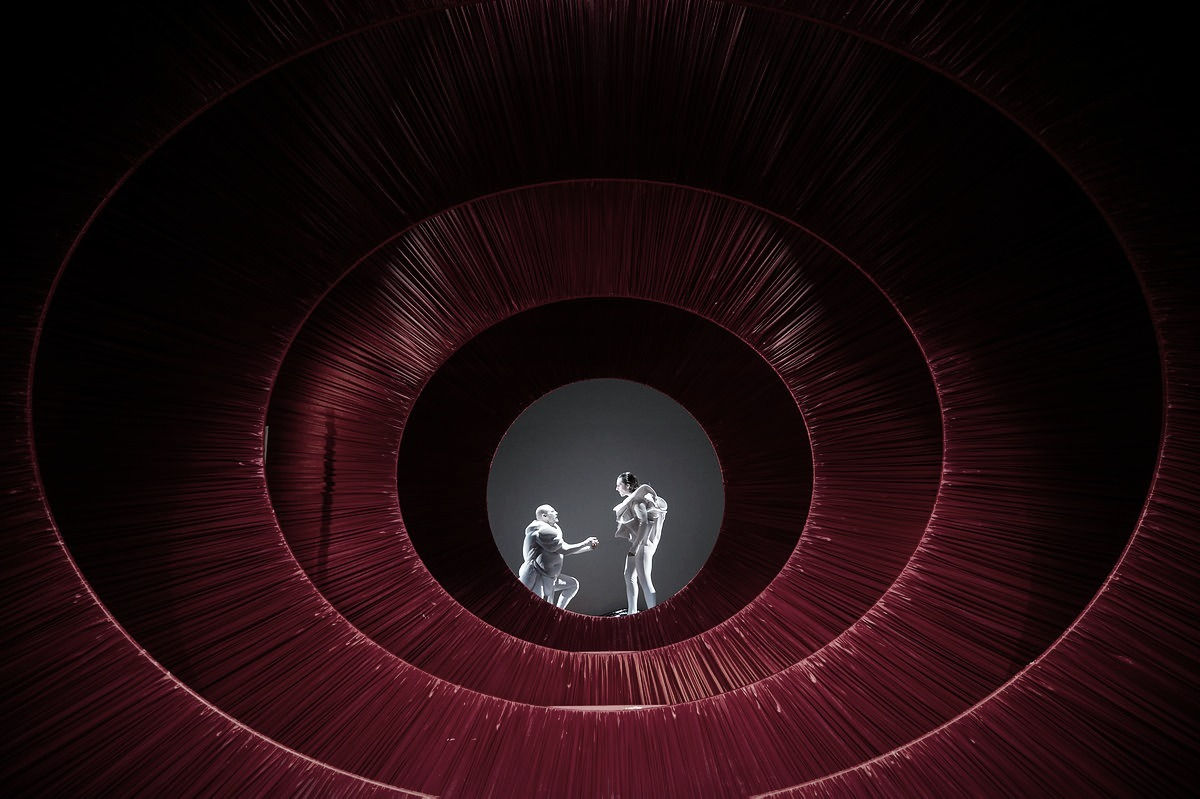
The Dragon, Schwartz
Staatstheater Augsburg, Augsburg, Germany
„When you are warm and cozy, it is wiser to sleep and keep silent.“
Evgeny Schwartz's "The Dragon", written in 1943 in the horrors of war, is a political fairy tale parable on dictatorship and the spirit of subjugation - and so much to the point that in the year it was written, after only two general rehearsals, it was banned for 17 years until finally one of the dragons, whom the author must have had in mind, while writing his play - Stalin - had already been in the ground for more than seven years.
The professional dragon slayer and hero Lancelot steps up to free a small town after four hundred years of suffering and oppression from the clutches of a dragon, but in doing so not only he has to deal with the beast itself, but above all with the frightened citizens, who have internalised the dragon's regime of injustice to such an extent that they themselves seek to defend it against their potential liberator. Even after the death of the tyrannical monster, the town does not find its way to freedom, but ends up in the dictatorship of the mayor, who manages to carry on the dragon's old reign of terror under the sign of democracy and humanity. Lancelot realises: to create mature and independent people, it is not enough to cut off a monster's head. Rather, the fight against tyranny must be won in the mind of each individual.
In "The Dragon", Evgeny Schwarz clearly identifies the root of Russia's misery, which continues even until today. It is impossible to liberate a society if it does not know what to do with this liberty and is even afraid of it. In a polemic and humorous way, the play traces all the little excuses and self-lies with which the citizens try to make their servitude appear to be the best of all forms of life, as well as the numerous strategies of oppression used by the despots - from the general system of spies, a controlled press, the arrest of disagreeable people to the evocation of seeming threats from the outside. All this is all too familiar to today's audiences, as the plague of unfreedom seems to be spreading again on all continents.
It is precisely through its unusual genre that Schwartz's political fairy tale play opens up the possibility of reflecting and commenting on today's world situation with ironic distance and even comic exaggeration. It is not only the well-known strong men and their followers, corrupted by power, fear and money, who are at the center of the satirical focus of the staging, but the self-declared liberators who believe that they are morally at peace with themselves and that Western concepts of democracy and values can simply be exported to all corners of the world by armed force.
starring: Ute Fiedler, Elif Esmen, Sebastian Müller-Stahl, Florian Gerteis, Kai Windhövel, Patrick Rupar, Andrej Kaminsky, Stefanie von Mende, Tom Dittrich, Thomas Hell
director: Andreas Merz Raykov
stage and costume design: Jan-Hendrik Neidert & Lorena Díaz Stephens
music: Stefan Leibold
dramaturgy: Sabeth Braun
photos: Jan-Pieter Fuhr




















